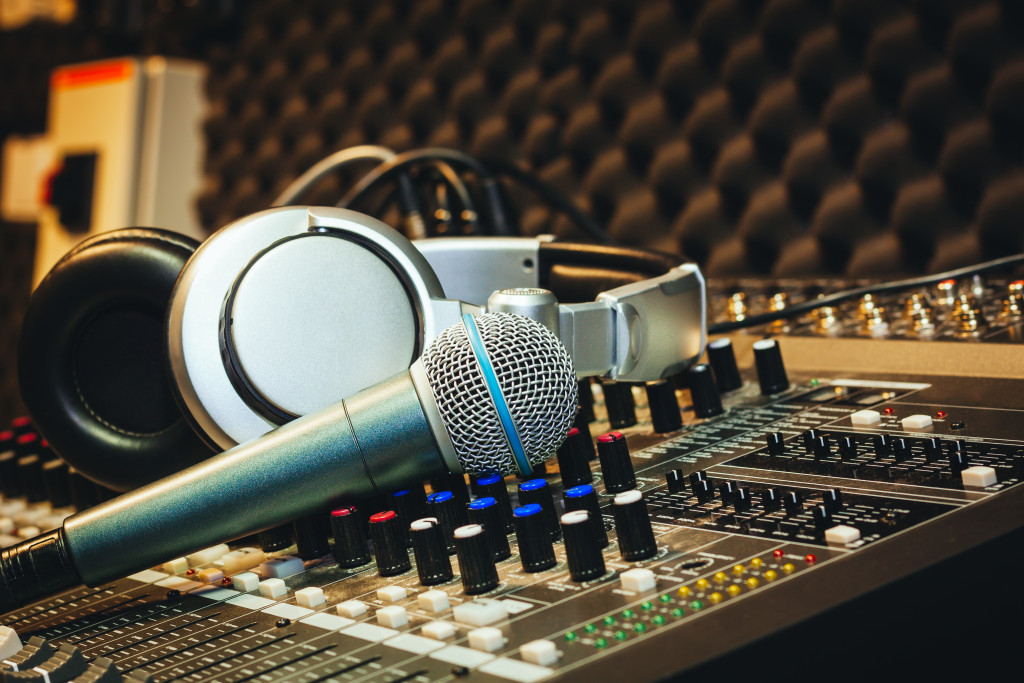When you have a spare room at home, turning it into a music studio is a great project. You will have space to practice, whether you are an aspiring or a professional musician, will allow you to practice any time you want.
However, your music studio is going to need more than just a door. You might receive a lot of noise complaints from your family and your neighbors if you do not make any of these modifications below.
Where Will Your Studio Be Located?
Ideally, your music studio is located in a secluded area of the house — far from the bedrooms and is not always exposed to loud sounds coming from outside.
You should also be ready to use the room exclusively for music. A studio has specific requirements that may not make it ideal for any other activities. Some people use their basement as a studio. It is the perfect space because it is away from living areas and, in most cases, it does not get a lot of noise. You can put up a wall, with the help of a residential contractor, to create a more secluded space for playing music.
Check the Quality of the Wall
The quality of the walls matters, not just to keep the sound in and the noise out. If the walls vibrate too much, which will happen if it is thin and flimsy, it will affect the music. Experts recommend using 5/8-inch wallboard coated in plaster to stop it from vibrating due to the audio.
Soundproofing your walls would be a great idea, too. You can install sound-absorbing panels, which are made in foam, to absorb the sound. If it looks too industrial for you, although they are less effective, some paints and wallpapers can reduce noise. Covering the walls with a thick blanket, tapestry, or quilt will also absorb the sounds you make in your studio. Remember: hard surfaces amplify sound while soft surfaces absorb it. Adding insulation to the walls will keep the sound in and the noise out.
Use a Soft Rug for the Floor
A rug does not just make a room cozy. It also prevents sounds from bouncing around the room. Whether your studio is in the basement or upstairs, it would be useful. It will absorb sound so that you would not be distracting other people within the household or your neighbors.

Eliminate Gaps
The doors and windows would cause acoustic problems. Sound, after all, travel through gaps. A perfect music studio does not have any openings, but that would be impractical. To minimize the effects of these openings, designers carefully consider the position of doors and windows when creating space for professional use.
For your home, your primary concern is the sound leaking out. Adding weather stripping to your door would muffle the noise. A draft stopper will close the gap underneath the door.
You can purchase noise-reducing curtains to block any sound coming in and out of your windows. There are also window inserts you can install that will prevent sound from moving in and out of your studio.
Install an HVAC System
Your heating, ventilation, and air conditioning system might interfere with the sound. During installation, the builder should consider where the ductwork would go. The vibrations underneath the walls and floors should be limited as much as possible.
Also, the furnace, fan, or compressors should be strategically placed somewhere within the studio to not distort any sound.
Consider the Electricity Requirements
You will need more electrical outlets for your various equipment, so adding more electrical outlets across the room would be convenient. It would free-up the floor, so you would not be tripping on wires every time you try to move. You also likely will need to increase the power in your electric box to fulfill the needs of your machines.
Although not necessary, you should think about giving the music studio its own circuit to not disrupt the rest of the house.
Once these additions are made, all you need to do is bring in your instruments and other equipment that you need. You will also need comfortable chairs so you can hang out in your new music studio for a long time. Of course, adequate lighting is necessary, too.
Your music studio does not have to be on the level of the professionals. However, these additions will make the space perfect for you to practice playing an instrument or creating your own songs anytime you want and without distractions. Moreover, it will prevent sound from leaking out, which means that even if you continue listening or playing music until dawn, your family and neighbors can sleep undisturbed.

